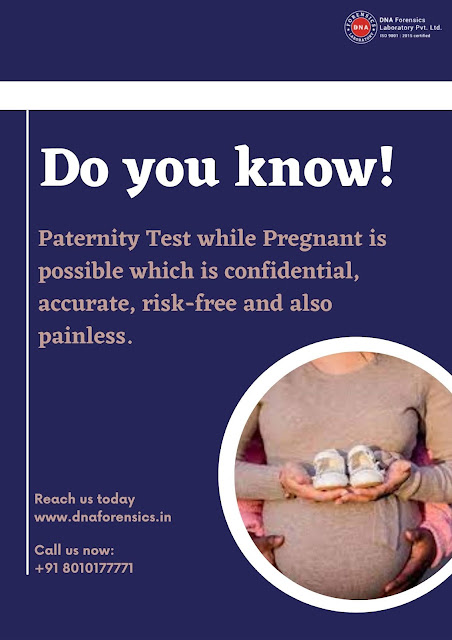Where to go for a Non-Invasive Prenatal Paternity Test in India

The prenatal Paternity Test determines whether a child is genetically related to their biological father or not. But, establishing the paternity of an unborn child is equally important and challenging. As it is non-invasive, getting a paternity DNA test while pregnant is safe and pain-free for both mother and the fetus. One can get the paternity test after eight to ten weeks of pregnancy. These kinds of tests are often done, as more than half of births to women under 30 occur out of wedlock. *Important Note: Prenatal Paternity DNA Test does not involve sex determination of an unborn child, as this is a criminal offense. We discourage such practices. How does the Non-Invasive Prenatal Paternity Test works?? Traditionally, specialized syringes are used to draw amniotic fluid for the test, which led to increased miscarriages and health complications for women. But, non invasive prenatal paternity test is 100% safe and can establish the paternity of the child with its alleged biological




